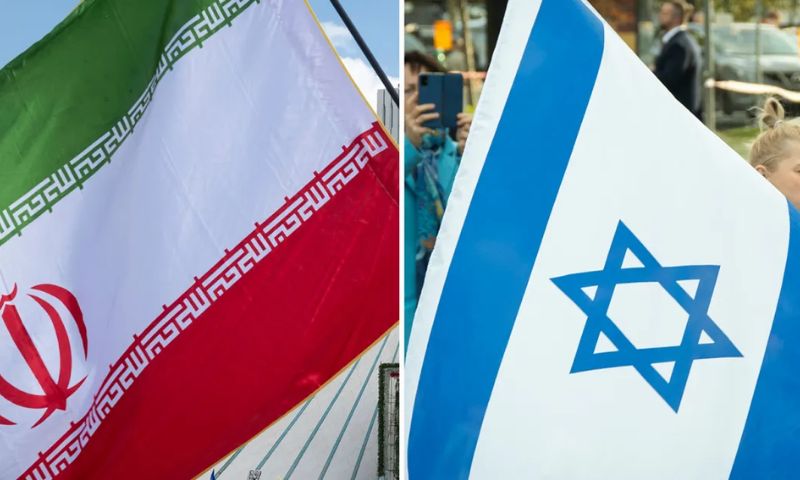TEL AVIV, Israel: Diplomatic pressure intensified to prevent an escalation between Iran and Israel following high-profile assassinations that have heightened regional tensions.
Israeli Prime Minister Benjamin Netanyahu declared that Israel was “determined to stand against” Iran and its allied armed groups “on all fronts.”
As Israel’s conflict with Iran-backed Hamas in Gaza nears its 11th month, the nation is preparing for potential retaliation due to the assassination of two senior leaders.
Hamas political leader Ismail Haniyeh was killed in Tehran on Wednesday, an attack blamed on Israel, which has not officially commented on it. This killing followed an Israeli strike in Beirut that killed Fuad Shukr, the military chief of Lebanon’s Hezbollah movement.
Iran asserted on Monday that it has the “legal right to punish the Zionist regime” for Haniyeh’s death. Meanwhile, US President Joe Biden convened crisis talks with his national security team as the US bolstered its military presence in the region with additional warships and fighter jets to support Israel. General Michael Kurilla, head of US Central Command, arrived in Israel to assess the security situation with Israeli military officials.
Rocket attacks continued to target US troops in Iraq, with the Ain Assad base in Anbar province being hit on Monday. This attack followed a recent US strike on July 30 that killed four pro-Iran Iraqi fighters. US Secretary of State Antony Blinken urged all sides in the Middle East to avoid escalation, emphasizing the urgent need for restraint.
A European diplomat in Tel Aviv noted that a coordinated response from Iran and its proxies was anticipated but de-escalation efforts were ongoing. The Jeddah-based Organization of Islamic Cooperation scheduled a meeting to discuss regional developments at the request of “Palestine and Iran.”
Israel continues to prepare for various scenarios both offensively and defensively. Multiple nations, including Turkey, have urged their citizens to leave Lebanon, reflecting the heightened risk of conflict. Major airlines have suspended or limited flights to the region due to security concerns.
The United Nations’ rights chief, Volker Turk, called on all parties to act urgently to de-escalate the precarious situation. Diplomatic efforts were echoed by Italian Foreign Minister Antonio Tajani and his Iraqi counterpart Fuad Hussein, who agreed to work towards preventing a regional escalation.
French President Emmanuel Macron also appealed for restraint in the Middle East. The ongoing Israel-Hamas war, triggered by Hamas’s attack on Israel on October 7, has already involved Iran-backed militants from Syria, Lebanon, Iraq, and Yemen.
As the conflict persists, the humanitarian toll has been severe. In Gaza, Israel’s military campaign has resulted in over 39,623 deaths mostly women and children, according to the Hamas-run health ministry. Hezbollah and Israel have continued near-daily exchanges of fire, with recent Israeli strikes in southern Lebanon killing three people, according to the Lebanese health ministry.
The region remains on edge, with Hezbollah expected to intensify its attacks on Israel. Meanwhile, rockets continue to be fired from Gaza into Israel, further escalating the conflict.























